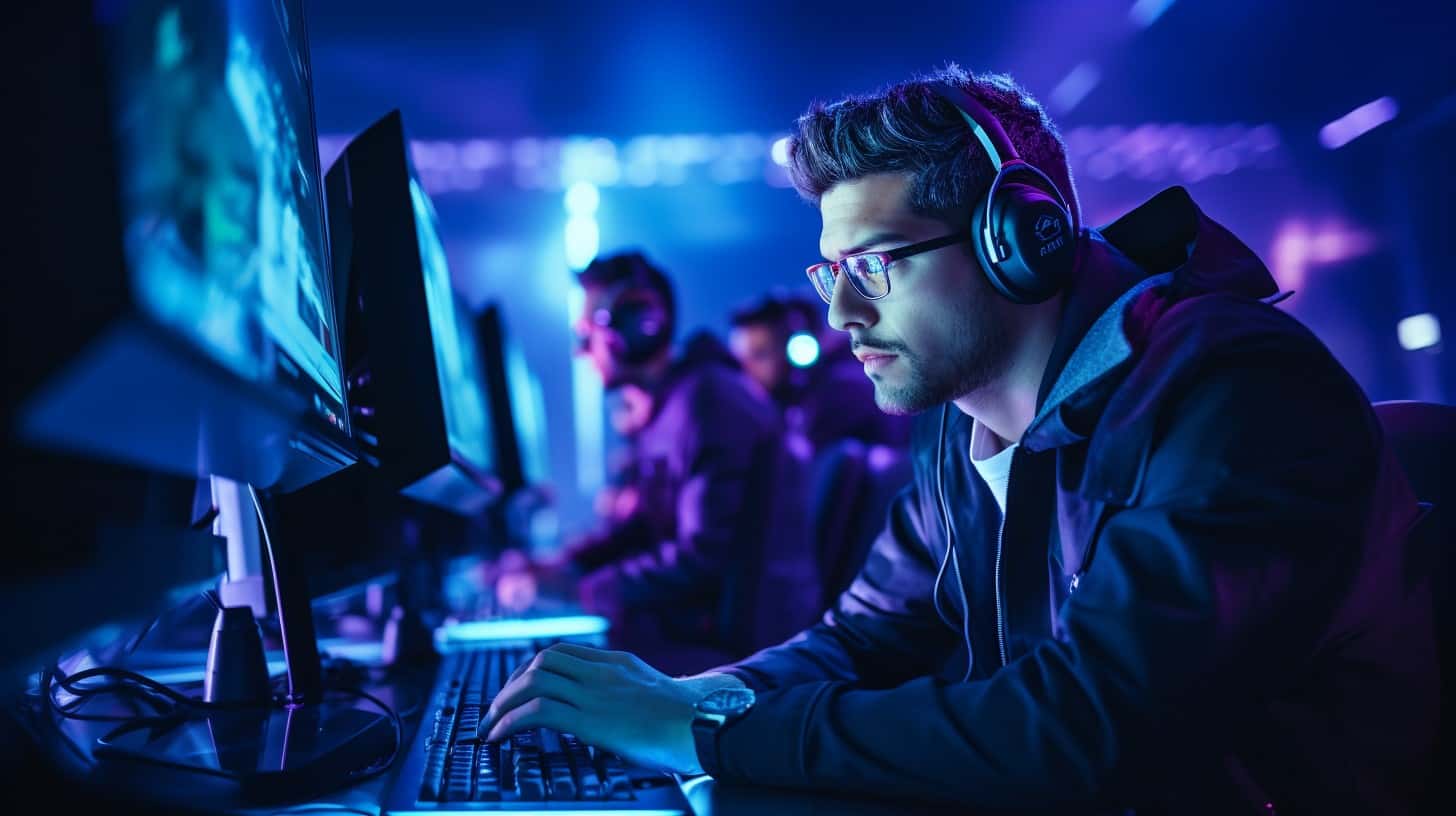Breaking into the esports coaching scene can seem as daunting as a final boss battle to many gamers. With the industry expanding rapidly, skilled coaches are now in high demand to guide players toward victory.
This guide is your strategic playbook, offering step-by-step tactics to transform gaming passion into a thriving coaching career. Dive in and unlock your potential as the next top-tier esports coach!
Key Takeaways
You don’t need to be a former pro player to become an esports coach, but you must understand the game deeply and know about team strategies.
To be a good coach, work on communication skills, learn how to manage players well, and always keep learning new coaching methods.
Building connections through networking can help you find job opportunities in esports. Join online communities and attend gaming events.
Start gaining experience by coaching for free or at amateur levels, then move up as you get better at leading teams.
Keep improving your skills with courses, workshops, and by getting advice from experienced coaches in the industry.
Table of Contents
Understanding Esports Coaching
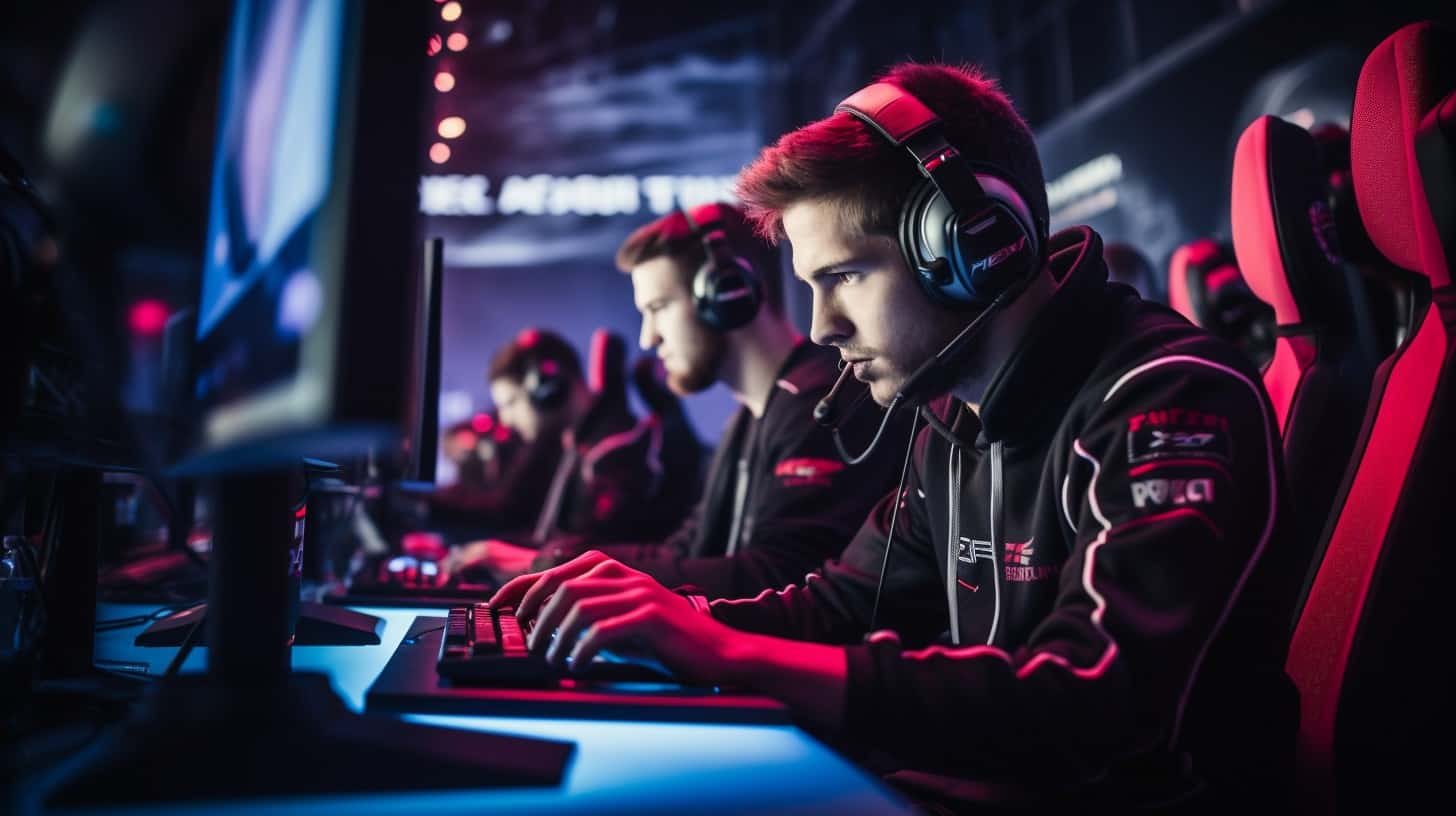
Understanding Esports Coaching is about diving deep into the multifaceted role of a coach in this competitive arena, where strategy and player development are paramount. It’s not just about having a passion for gaming; it’s a profession that demands specialized knowledge and an array of skills to guide teams to victory—and yes, even affect the odds at Esports bookmakers.
Role of an Esports Coach
An esports coach does more than just watch games. They help players build their skills and work on strategies to win. Think of them like a teacher who makes sure everyone works well together and learns how to play the game better.
Coaches focus on improving communication within the team too, because talking right can lead to winning.
They also look after each player’s well-being, helping them deal with stress and stay mentally strong for tough matches. With different coaching roles available, from teaching gameplay to taking care of health, coaches are key in helping teams reach their top performance in esports.
Qualifications Required for Esports Coaching
You don’t need a special degree to start coaching in esports. But you should know the game you’re coaching very well. It helps to have skills like motivating players and working with them as a team.
Good coaches are also good at talking to their players and solving problems together.
To get ready for this job, learn from pros and manage your own teams. Try different ways of training and leading gamers. Get experience by doing these things, so you will become a better coach.
Then, you’ll be ready to teach others how to play smarter and win more games.
Steps to Become an Esports Coach
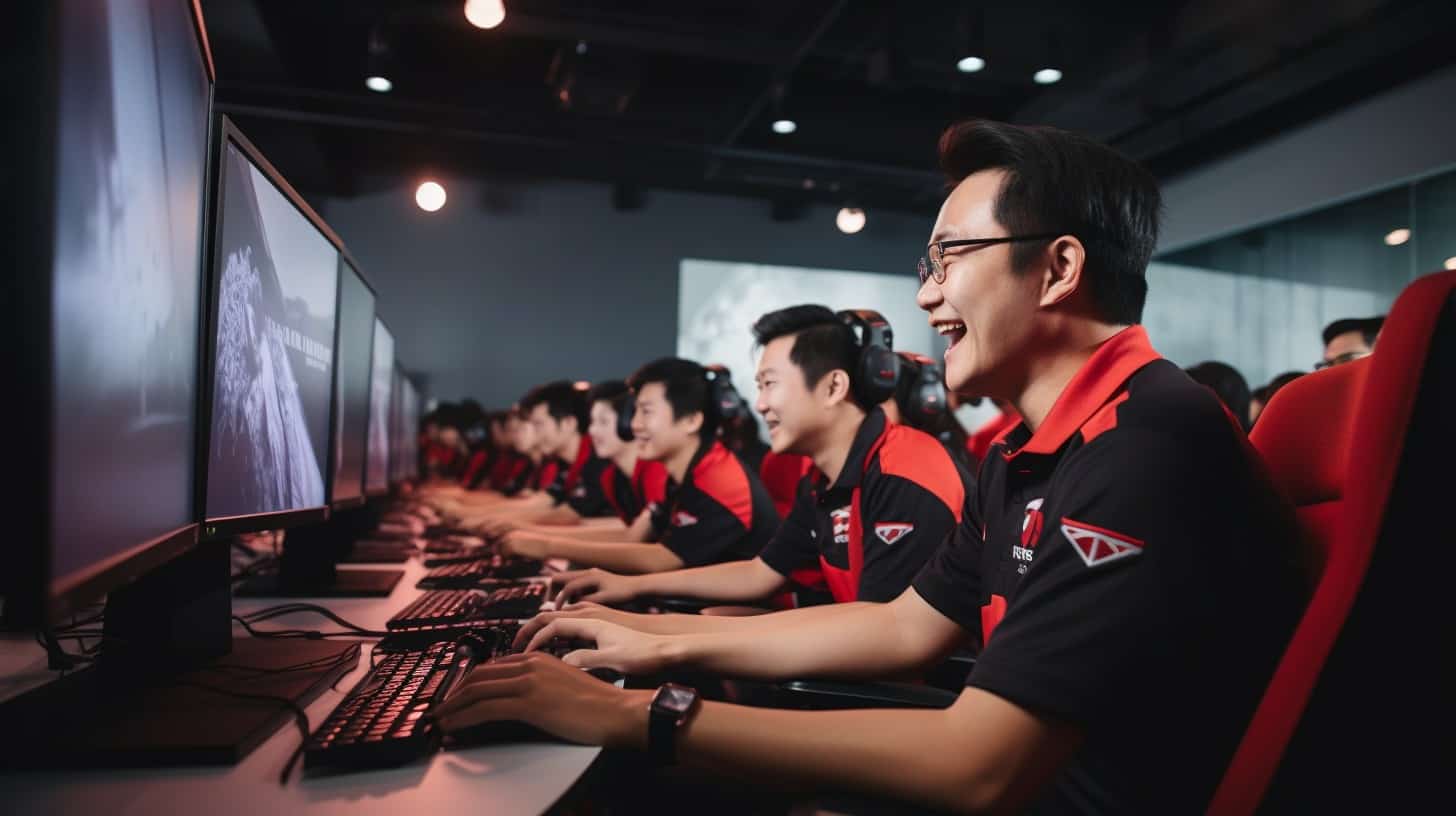
Embarking on a journey to become an esports coach involves more than just a passion for gaming; it requires a strategic approach and dedicated professionalism. Whether you’re coming from the ranks of avid gamers or stepping into esports with coaching expertise, this path demands developing specific skills, acquiring recognized qualifications, and effectively navigating the competitive landscape of team management.
Acquiring the Necessary Skills and Experience
To become an esports coach, you need the right skills and experience. This means learning a lot about the game and how to work with players.
- Play the game a lot. Get to know everything about it. You should understand strategies, updates, and how to play well.
- Watch top players. See how they make decisions and handle pressure. You can learn new techniques and styles from them.
- Join online communities for gamers. Talk with others about games and coaching. Share your thoughts and ask questions.
- Coach for free at first if you need to. Offer to help teams without getting paid. This gives you real experience in coaching.
- Study sports psychology. Learn how the mind works in sports. This helps you understand your players better.
- Take online courses on coaching or leadership. These can teach you ways to manage a team and be a good leader.
- Find a mentor who knows about esports coaching. They can give you advice and help guide your career.
- Go to esports events or tournaments when you can. Meet people who are involved in esports there.
- Help friends or local players improve their game skills. Explain things clearly as if you were already their coach.
- Always look for new learning materials like books or videos on gaming tactics.
Getting Qualified
Getting qualified as an esports coach means you’re ready to help gamers become the best they can be. You’ll need to learn the ropes and get the right credentials.
- Look into coaching courses from professional bodies like the International Federation of Esports Coaches. These groups offer classes that teach you how to manage a team and make strategic decisions.
- Check out structured programs from places like the Esports Coaching Academy. They provide environments for learning all about esports coaching skills.
- Earn certifications that are recognized in the gaming industry. This shows teams you have a serious commitment to your role as a coach.
- Gain a deep understanding of games, especially if you want to coach for specific ones like League of Legends or CS:GO. Know all the rules, strategies, and latest updates.
- Learn about sports psychology. Understanding mental well-being can improve your coaching by helping players handle stress and build mental resilience.
- Develop strong communication skills. You must give clear instructions and feedback to your players.
- Practice makes perfect, so start with amateur or volunteer positions to build experience. Join local tournaments or offer free coaching sessions online.
- Stay updated on esports trends through websites, forums, social media platforms, and news articles. Being up-to-date with changes in games will keep your advice relevant.
- Network with other professionals in esports by attending events, joining online communities, or even starting your own esports team. Making connections can lead to job opportunities.
Finding a Coaching Job
Once you’ve got your qualifications, it’s time to land a coaching job in esports. This is where your journey really takes off. Here are some key steps to help you find that perfect spot on an esports team:
- Build a solid resume: Make sure it shines with all your gaming experience, coaching certificates, and related skills.
- Create an online presence: Start an esports team if you can, or join gaming communities. Show off your skills on social media platforms.
- Learn from others: Watch YouTube videos of great coaches and study their moves and words.
- Network like a pro: Get to know people in esports by attending events and joining forums. Networking opens doors and can lead to job offers.
- Check job listings: Look for coaching opportunities on company websites and gaming job boards.
- Make yourself known: Reach out to teams with targeted ads or marketing strategies. Get creative to get noticed!
- Show your value: Explain how you can make money gaming for them by improving team performance.
- Understand the game deeply: Know the ins and outs of MOBAs or other games inside out – teams look for experts.
Managing Your Team
After landing a coaching job, the real challenge begins: effectively leading your team. Success in esports relies on more than just gaming skills; it’s about uniting players and fostering growth. Here’s how you can manage your team like a pro:
- Set clear goals. Work with your team to decide what you all want to achieve. This could be winning a specific tournament or improving everyone’s individual skills.
- Build trust with players. Spend time getting to know each player personally. Listen to their concerns and show that you care about them, not just their performance.
- Communicate well and often. Whether it’s through meetings or online chats, keeping open lines of communication is key. Make sure everyone understands game strategies and their roles.
- Encourage teamwork. Esports is a sport where working together really matters. Run team-building exercises and create a positive environment where players support each other.
- Analyze games together. Watch past matches as a group and discuss what went right or wrong. Use this time to teach new strategies and thought processes.
- Manage stress levels. Competition can be tough on mental health. Teach stress management techniques and ensure players take breaks when needed.
- Keep learning and improving your own skills. To guide others, you must also grow yourself. Stay updated on the latest game changes and coaching methods.
- Handle conflicts swiftly and fairly. If players argue or have issues, sort it out quickly before it affects the whole team.
- Celebrate successes, no matter how small they seem. When someone does something great, make sure the whole team knows about it.
Essential Skills for an Esports Coach
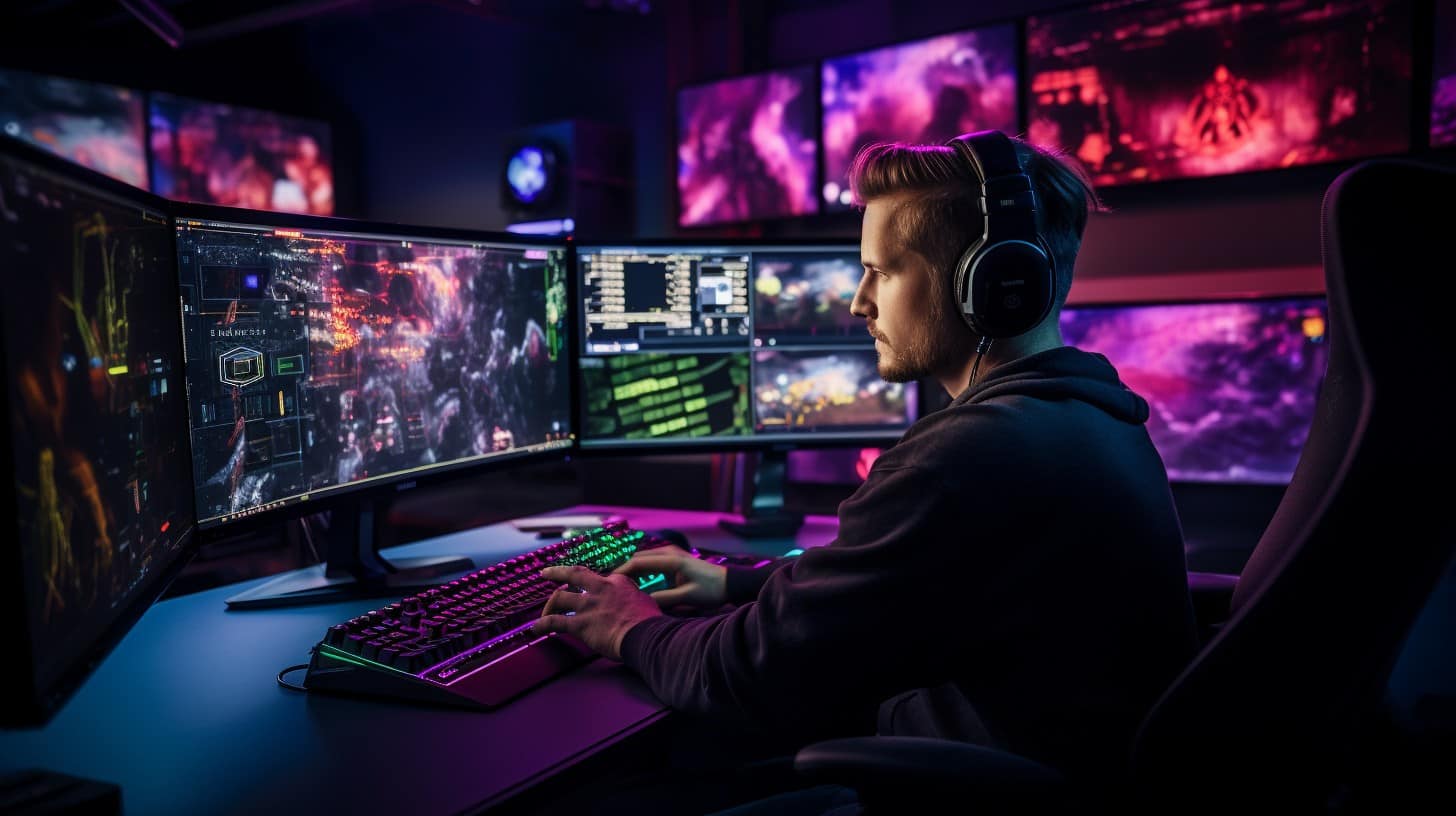
Mastering the cornerstones of effective leadership, an Esports coach must hone a diverse set of abilities to navigate the dynamic landscape of competitive gaming—dive into our guide for insights on leveling up your coaching toolkit.
Strategic Game Understanding
To coach esports successfully, you really need to know the game inside out. This means understanding every part of how the game works. You should know what each character or player can do and all the possible moves that can happen in a match.
It’s like being a sports coach: you don’t have to be the best player ever, but you must get how everything fits together—like knowing all the plays in basketball or every move in chess.
Coaches dig deep into games to find winning strategies. They stay sharp by watching lots of matches and learning from other teams’ styles. For instance, if you’re coaching a multiplayer online battle arena (MOBA) game, it’s your job to figure out which characters work well together and what tactics beat your opponents.
Keeping up with changes, like when a game gets updated or when something is nerfed, keeps your team ahead of others. Even if you’re not playing at the pro level yourself, having this strategic brain for gaming matters a lot for guiding players and making smart calls during tense moments.
Player Management
Player management is a huge part of being an esports coach. You have to help players grow their skills and work well together. Think about what each player needs to do their best. You need good people skills to motivate them and build strong relationships.
Good coaches listen and solve problems to keep the team happy.
You also keep an eye on how players feel, both in their heads and hearts. This means knowing when they need a break or some extra support from sports psychologists to stay sharp. Your job is making sure everyone is moving forward together towards winning as a team, which leads you right into team building.
Team Building
Team building is a huge part of being an Esports coach. You need to be able to see who works well together and build trust among your players. Think about making a puzzle; every piece has to fit just right for the picture to come together.
Your job is to find those pieces in gamers and put them into place. You teach them how to back each other up, share their skills, and go after the same goals.
Strong teams don’t just happen; they’re made through hard work and smart choices. As you lead your team in nerdier hobbies like gaming, you help each person grow stronger with others’ support.
Coaches create exercises that make teammates rely on one another so they can win not just games but championships too! Keep this in mind: Great teams lift each other up when times get tough, all thanks to great coaching behind the scenes.
Communication Skills
Good communication is key for any esports coach. You must share your game plan so that every player knows what to do. It’s like being a mentor, helping the team work together by understanding each player’s strong points and things they could get better at.
Talking through game tapes is part of this too – you show where the team did well and where they can improve in future matches.
Your words have power. Use them to build trust with your players and help them grow stronger as a group. Keep learning how to be clear and kind when you speak, because that will make you an even better coach.
Now, think about how advancing your career as an esports coach takes more than just good talk – it’s about growing your skills all the time.
Advancing Your Esports Coaching Career
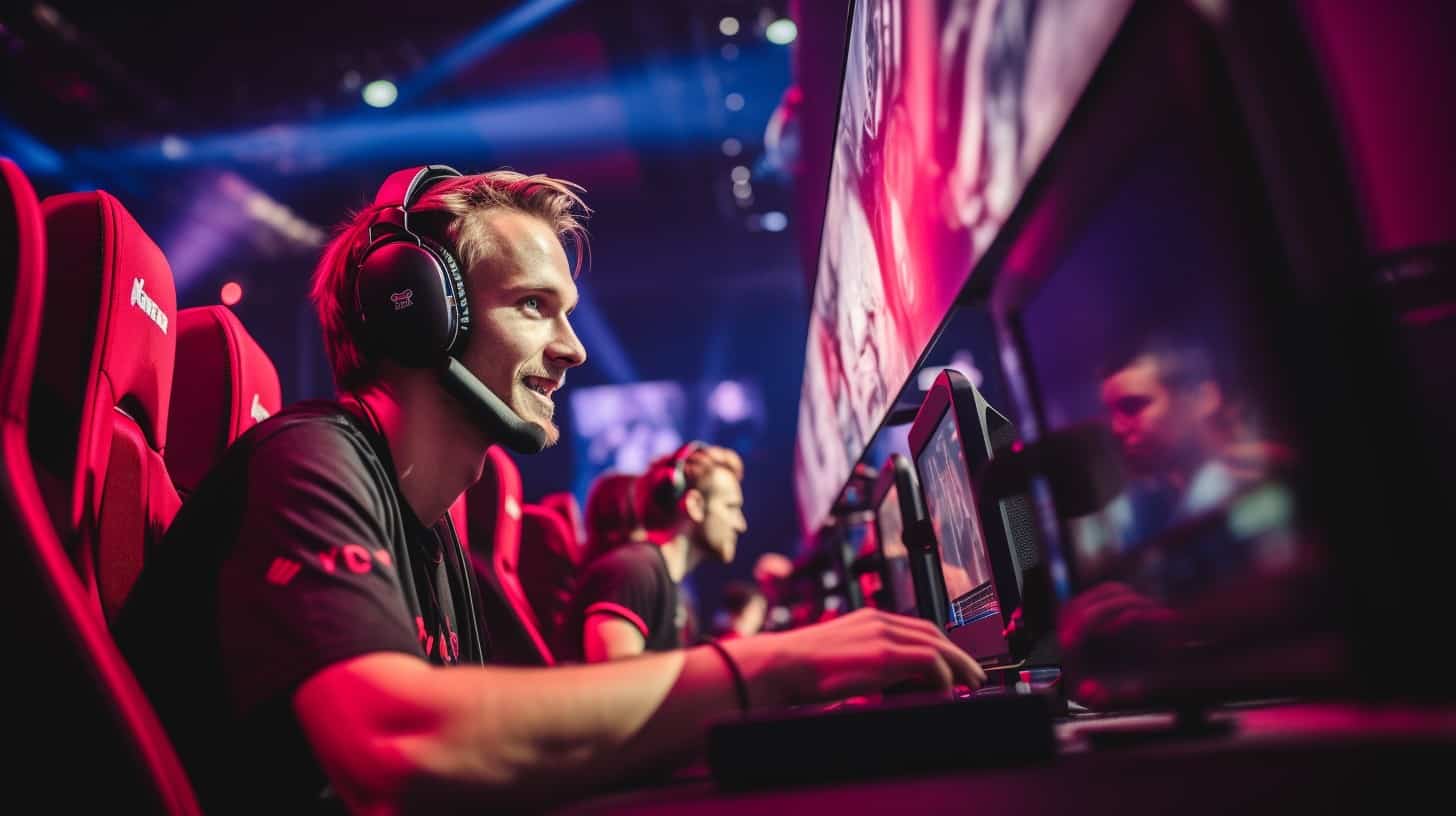
Progressing in the world of esports coaching involves more than just understanding the game; it’s about building upon your foundational skills and strategically propelling your career to new heights.
Explore how continued learning, industry networking, and pursuing advanced credentials can be game changers for your professional journey.
Continuous Skill Development
Becoming a top Esports coach means never stopping your learning. You need to grow and get better, just like your players do.
- Dive deep into the game: Know every part of the game you’re coaching. This means studying strategies, staying updated on changes, and understanding how each role works.
- Work on motivation: Help players stay excited about playing and getting better. Find out what drives each player and use it to push the team forward.
- Improve how you talk with others: Good communication can make or break a team. Practice clear, direct talking. Listen well and learn to solve problems without making them bigger.
- Build strong relationships: Get to know your players as people, not just gamers. Trust between a coach and player is key to success.
- Keep making plans: Always have a strategy for training and matches. Be ready to change plans if needed, but go in prepared.
- Stay healthy in mind and body: A good coach needs energy and focus. Make sure you eat right, exercise, rest enough, and deal with stress in healthy ways.
- Reflect on yourself: Look back at your coaching often. Think about what works well and what doesn’t. Be honest with yourself so you can improve.
Networking in the Esports Industry
Networking is key to making it big in esports coaching. It helps you meet important people and learn from the best.
- Get to know other coaches and players at esports events. This can lead to job opportunities or helpful tips on becoming a better coach.
- Use social platforms like Twitter and Facebook to connect with the gaming community. Share your thoughts on games, join conversations, and make new friends online.
- Join online forums and groups where esports topics are hot. Here, you can show off your game knowledge and get noticed.
- Attend workshops and coaching clinics to improve your skills. You will meet others who want to grow just like you.
- Offer help or advice when other gamers ask for it online. They might return the favor later or recommend you for a coaching spot.
- Create content that shows your love for gaming, such as YouTube videos or blog posts about strategy in popular games like CSGO.
- Find a mentor who’s already a successful coach. Learn everything you can from them about leading a team.
Pursuing Additional Qualifications
Building connections in the esports world opens doors to new opportunities. It’s time to talk about leveling up your game with extra qualifications.
- Check out courses on coaching and game strategy. Many places offer classes that teach you how to be a better coach. Look for ones that match the games you like.
- Get a mentor who knows more than you. Find someone who has been an esports coach for a while. Learn from them as much as possible.
- Attend workshops and webinars about esports. These help you stay up-to-date with what’s new in gaming and coaching.
- Go back to school if you need to. Some coaches study psychology or education to understand players better.
- Earn certificates that show your skills. This can make teams see you are serious about coaching.
- Read books by top esports coaches. These can give you tips on making your team great.
- Watch videos by professional esports teams. See how they train and try their methods with your team.
- Work on personal skills, like talking well and staying calm under stress. These help a lot when working with a team or talking to fans and other coaches.
Do Esports Coaches Need to be Former Pro Players?
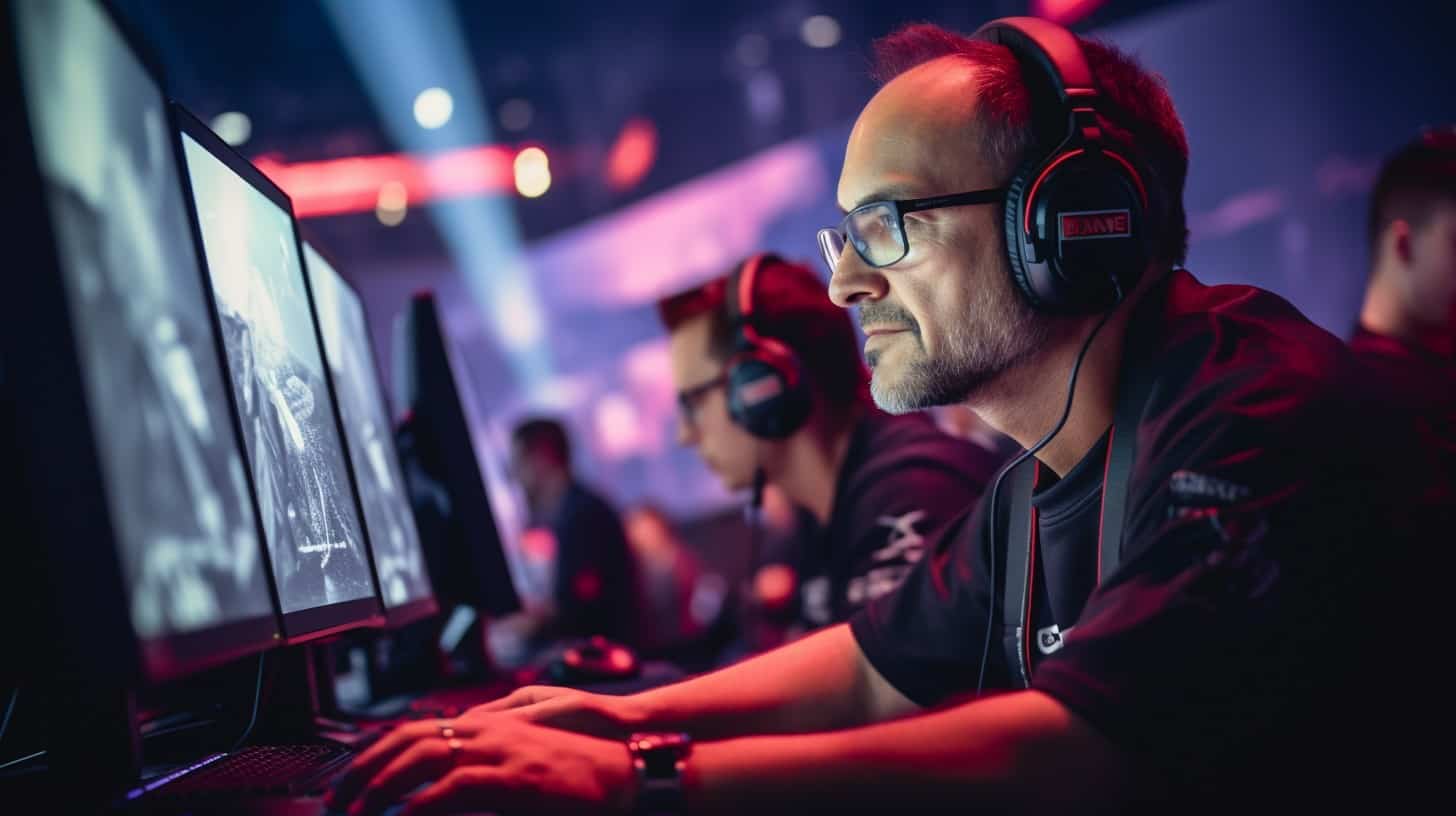
Esports coaches come from many backgrounds. You don’t have to be a former pro player to coach.
- Understanding the game is key, not just playing it. Coaches need deep knowledge of how the game works.
- Communication skills trump playing skills. It’s about teaching and leading a team, not just showing them.
- Analyzing gameplay matters. Good coaches spot patterns and make plans to help their team win.
- Experience counts in different ways. Some coaches have played before; others study games like experts.
- Player management is part of coaching too. This means helping players work well together and stay focused.
- Building strategies can be learned without being a pro gamer. Coaches often learn by watching games and staying up-to-date with new tactics.
- Mentoring comes from understanding people, not just games. Great coaches guide players in gaming skills and teamwork.
The Impact of Esports Coaches on Team Performance
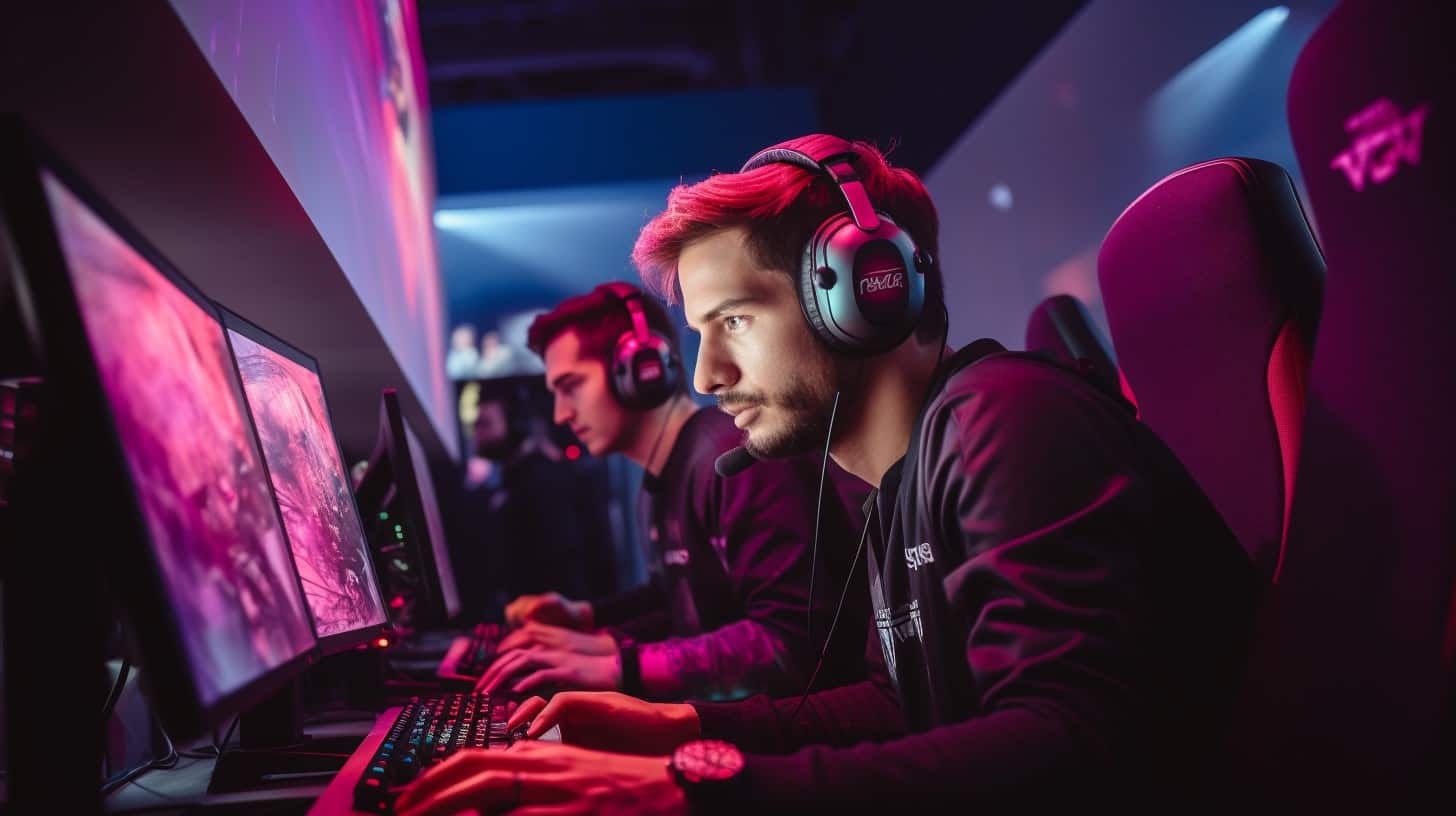
Good esports coaches make a huge difference in how a team performs. Just like in traditional sports, these coaches work behind the scenes to plan strategies and help players grow. They watch games and find where the team can get better.
A strong coach will spot mistakes and show players how to fix them. Each gamer comes with their own skills, but the coach helps all these talents work together for the win.
Coaches also handle stress and pressure within the team. Before a big match, they keep everyone calm and focused. If there’s an argument or problem among players, it’s up to the coach to smooth things out.
Players trust their coaches to guide them toward success by improving teamwork and making smart choices during play.
Knowing about different kinds of coaching helps too—some focus on mental health, while others dig into game strategy or physical fitness. With this support from various coaching roles, teams can reach new heights in performance.
Charting the Path to Become a Successful Esports Coach
Becoming an esports coach takes skill and passion. You need to know the game, work well with players, and build strong strategies. Remember, you don’t have to be a pro player first.
Just focus on learning, networking, and loving your coaching job. With these steps in mind, you can lead a team to victory!
FAQs About Becoming an Esports Coach
What does it take to become an esports coach?
To become an esports coach, you need to understand games, teach skills, think critically, and know how to analyze data. Good coaches also listen well and help with setting goals.
How important are statistical methods in esports coaching?
Using statistics helps coaches make smart choices by looking at team performance numbers and finding ways to win more games.
Can anyone be an esports coach, or do I need a special education?
While formal education can help, it’s not always needed. If you have a strong understanding of the game, can mentor players, and make good decisions, you could be a coach.
Do I need experience in playing video games before coaching?
Yes! Knowing the game inside out is key for spotting talent and helping gamers improve their skills as part of your coaching job.
As an Esports Coach, how do I keep up with new strategies?
Always learn by watching streamed matches, watching videos on YouTube or Vimeo, reading about new tactics online, and practicing both critical thinking and problem-solving every day.
Does being an Esports Coach mean working alone all the time?
Nope! Coaches often work together with others, like analysts for data-driven insights or casters for match commentary; teamwork makes the dream work.
